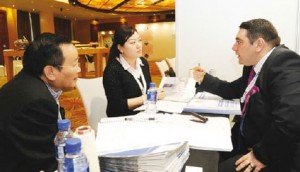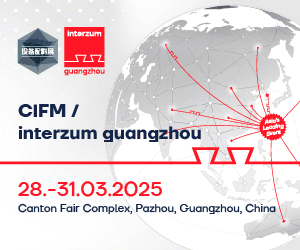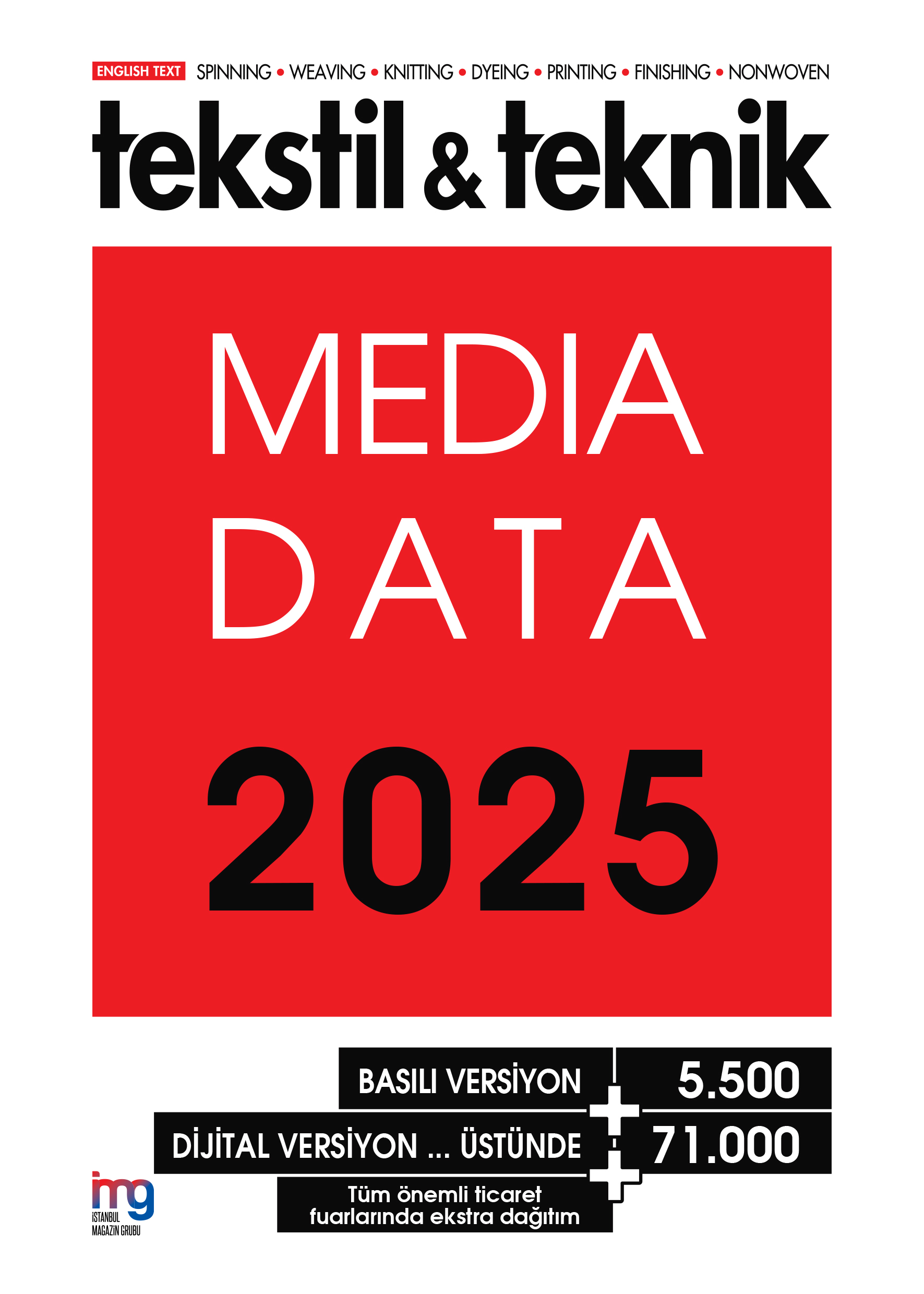 Following the success of recent yarn sourcing events, Cotton Council International (CCI) partnered with Turkish members of the COTTON USA Supply Chain Marketing Program to meet with Chinese fabric manufacturers from across China in Shanghai.
Following the success of recent yarn sourcing events, Cotton Council International (CCI) partnered with Turkish members of the COTTON USA Supply Chain Marketing Program to meet with Chinese fabric manufacturers from across China in Shanghai.
Eight Turkish mills (Beyteks, Ensar, Erdem, Iskur, Matesa, Sahtas, Ugurlular, Uspar) met thirty-one fabric manufacturers in one-on-one meetings over a three day long period. Due to China’s cotton policy, imported cotton yarns remain competitively priced compared to selected domestic yarn counts. Currently Turkey sells small amounts of yarn to China but feedback from Chinese authorities suggests significantly more market potential for the Turkish mills in the future. These meetings were the first step in developing Turkish exports to China.
The Chinese textile manufacturers included: Advance Denim, Black Peony, Changzhou Xin Hong Ji, Dalian Ichihiro Towel, Dongguan Kefang, Dongtai Oriental Weaving, Esquel Group, Benjie Textiles, Hangzhou Tianrui Printing & Dyeing, Hebei Spring Textiles, HebeiYongliang Textiles, Huafang, Ibena Shanghai Technical Textiles, JiangmenDaxing Knitting, Jiangsu Shazhou Printing & Dyeing Group, LinyiAotai Textiles, Loftex, Luthai Textile, Nantong Dongdi Textiles, Ningbo Qiaotaixing Textiles, Prosperity Textiles, Qingdao Jifa, Seazon Textile & Garments, Shanghai Lion City Textiles, Shijiazhuang Changshan Textiles, Tianjin Tianfang, Winner Industries, Wujiang Atlantic, Wuxi #1, Yixing Lucky Textiles, Zhangjiagang Zhenmeng Textiles. They were joined by the Chinese buying office of the Turkish manufacturer, and largest retailer, LC Waikiki.
Following the three day private trade fair, Turkish mills toured four factories located in Nantong and Wuxi to meet purchasing managers and discuss product needs. In all, CCI organized a total of 280 face-to-face meetings. Participants expressed enthusiasm for this first step toward developing future cooperation.
Mr Kadir Kurtul, Iskur Tekstil commented ‘Not only did the trip provide a necessary understanding of the Chinese market, but it was an invaluable way to develop business contacts with a large number of companies in a short period of time.’









